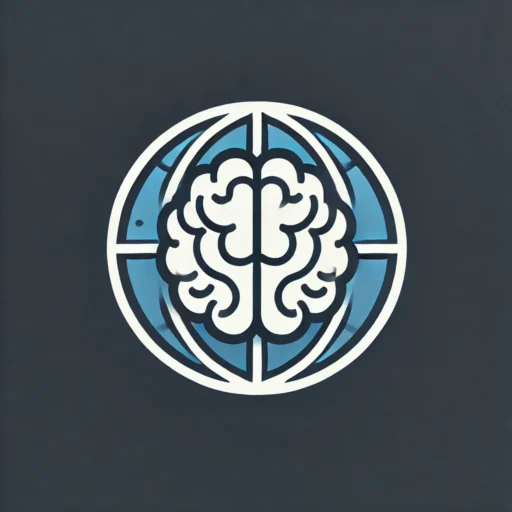Is Mental Health the Next Big Crisis? How to Protect Yourself
Mental health is steadily climbing the ranks as one of the most pressing global concerns. Whether you’re a content creator trying to keep up with algorithm changes, a tech enthusiast exploring disruptive innovations, or even an aspiring entrepreneur juggling endless responsibilities, mental health touches every aspect of modern life.
This blog will examine whether mental health is the next big crisis and, more importantly, what you can do right now to protect yourself. We’ll explore expert insights, actionable tips, and ways to foster better mental well-being as we all adapt to an increasingly demanding world.
Is Mental Health the Next Big Crisis?
The Current Landscape of Mental Health
The numbers paint a stark picture. According to the World Health Organization, depression affects 280 million people globally, while anxiety disorders impact another 264 million. Stress from work, financial hardships, and the constant pressure to “perform” has heightened mental health challenges across industries.
The tech space is no exception—addiction to smartphones, endless scrolling on social media, and the glorification of hustle culture have amplified these issues. Burnout is becoming increasingly common, especially among freelancers, entrepreneurs, and content creators working in highly competitive environments.
Technology, Social Media, and Environmental Factors
Social media platforms were created to connect us, but often they do the opposite. From comparing oneself with social media celebrities to falling victim to trolling, it’s clear that platforms like Instagram, Twitter, and TikTok can take a toll on mental health. Marques Brownlee, a renowned tech reviewer, emphasizes, “Tech can enhance our lives, but it’s essential to be mindful of our usage to prevent burnout and maintain mental clarity.”
Additionally, environmental concerns, such as climate change and unsustainable practices, have sparked anxiety among eco-conscious individuals. Greta Thunberg puts it simply, “Our well-being is intrinsically linked to the health of our planet. Adopting sustainable habits not only benefits the environment but also our mental health.”
Expert Insights to Navigate Mental Health Challenges
Balancing Technology
Technology isn’t the enemy. It’s how we use it that matters. Entrepreneur Gary Vaynerchuk stresses, “While technology is driving us forward, it’s crucial that we also focus on its impact on our mental health. Balance is key.”
How can you start? Use tools like apps that limit screen time or enable “Do Not Disturb” modes during focused work hours. Digital wellness is an emerging movement that can empower you to reclaim your time and mental space.
The Importance of Sleep
Adequate sleep is a non-negotiable when it comes to mental well-being. Dr. Michael Breus, The Sleep Doctor, explains, “Optimizing your sleep is the foundation of mental well-being. Creating a sleep-friendly environment and sticking to a consistent schedule can work wonders.”
You can take practical steps such as eliminating blue light before bedtime, investing in quality blackout curtains, and maintaining a regular sleep and wake schedule.
Taking Digital Detox Breaks
“In a world where we’re always connected, it’s important to take digital detoxes and prioritize real-life connections for our mental health,” suggests lifestyle blogger Emily Schuman. Plan dedicated periods away from the digital world to rejuvenate. Use this time to connect with loved ones, explore a creative hobby, or simply unwind.
Practical Tips To Protect Your Mental Health
- Be Mindful of Social Media Use
-
- Limit the time you spend on platforms, especially late at night.
- Follow accounts that inspire and uplift you rather than those that provoke anxiety or comparison.
- Remind yourself that social media often presents a curated highlight reel, not reality.
- Optimize Sleep
-
- Keep devices out of your bedroom.
- Use tools like white noise machines or sleep apps for better rest.
- Establish a nightly wind-down routine, such as reading or meditating.
- Foster Sustainable Habits
-
- Reduce environmental stress by practicing eco-friendly habits like recycling or using reusable products.
- Studies show that contributing to a healthier planet often has positive psychological effects.
- Practice Gratitude
-
- Reflect on three things you’re grateful for each day to combat negativity.
- Apps like “Grateful” or a simple journal can help you stay consistent.
- Engage in Physical Activity
-
- Incorporate some form of movement into your daily routine, whether it’s yoga, cycling, or even a 15-minute walk.
- Exercise releases endorphins that naturally elevate mood.
- Seek Professional Help
-
- Don’t hesitate to talk to a therapist or counselor if your feelings of stress or overwhelm persist.
The Role of Community and Support
Never underestimate the importance of the connections you share with others. Building strong relationships, whether personal or professional, creates a safety net of support during challenging times. Virtual communities like those for freelancers, digital marketers, and health enthusiasts can provide a valuable sense of belonging.
Many platforms also host forums and groups where individuals can express concerns, exchange advice, and build meaningful connections. Regular engagement with such networks alleviates isolation and fosters a sense of resilience among members.
Looking Ahead to a Healthier Future
Change starts with mindful action. Employers can set the tone by promoting employee wellness programs and flexible work environments. Tech creators can lead by designing products that prioritize digital wellness. Consumers, too, have a role—choosing sustainably sourced products and advocating for ethical tech can create ripple effects across industries.
Individually, making small but deliberate changes to improve mental health—whether through better sleep, reduced screen time, or eco-conscious habits—can lead to profound transformation. By prioritizing self-care and encouraging open conversations about mental health, we can collectively work toward a stronger, healthier future.
Gary Vaynerchuk puts it best, “Balance is key.” Take the time to pause, reflect, and decide. How will you take care of your mental health today?
Join the Conversation
What are your thoughts on the state of mental health in today’s world? Share your insights in the comments or join the discussion on our social media channels. Don’t forget to forward this article to friends or colleagues who might find it helpful.
